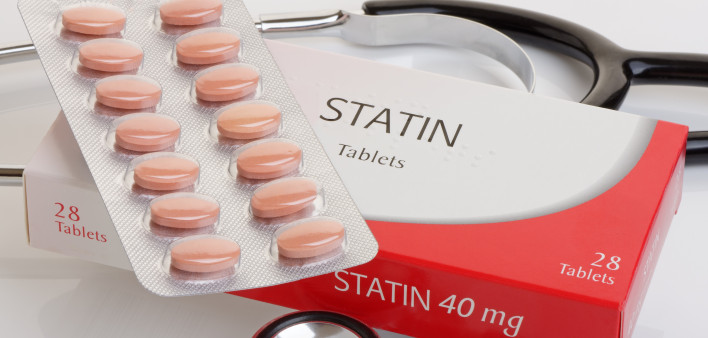People with HIV who are assessed as having a moderate long-term risk of cardiovascular disease (CVD) do not experience a slowdown in plaque buildup in their arteries, known as atherosclerosis, as a result of taking the statin medication Crestor (rosuvastatin), aidsmap reports. This finding from a recent study held true despite the fact that, as expected, those taking Crestor rather than a placebo saw their cholesterol decline.
Janine Trevillyan, PhD, of the University of California, Los Angeles presented findings from a study of Crestor among 84 Australian and Swiss people with HIV at the 10th International AIDS Society Conference on HIV Science (IAS 2019) in Mexico City.
The median age of the study cohort was 54 years old. Almost all the participants were men, and the majority were white. All had been taking antiretrovirals (ARVs) for at least six months and had fully suppressed HIV. In general, they had high CD4s.
All the participants had a moderate risk of CVD according to their 10-year Framingham Risk Scores. Researchers have found that this scoring system is an imprecise predictor of such risk in the HIV population.
One in three participants currently smoked, and one third had a history of heart attack in their family. About one in four were taking Ziagen (abacavir), which some studies have associated with CVD.
The participants were randomized to receive daily Crestor or a placebo. For those taking protease inhibitors, the Crestor dose was lowered from 20 milligrams to 10 mg.
To assess the progression of atherosclerosis, the investigators assessed what is known as the carotid intima media thickness (cIMT) at three sites on both sides of the neck, doing so at the study’s outset, and at week 48 and 96 of the study. At the beginning of the study, the cIMT measurements were comparable between the Crestor and placebo groups.
Those receiving Crestor experienced a decline in total cholesterol and LDL cholesterol while those in the placebo arm maintained stable levels. However, there was no significant difference between the two study arms in the progression of cIMT during the study. That said, those in the placebo arm did not experience the progression in atherosclerosis that the investigators had expected.
In the Crestor study group, two people died, and five people (11%) experienced serious adverse health events, including a stroke, two heart attacks, two diagnoses of type 2 diabetes and one case of heart failure. There were no such negative outcomes in the placebo arm.
The study findings contrast with those of a previous study that indicated that statins did in fact slow atherosclerosis progression in people with HIV. However, compared with this new study, the older one had a higher prevalence of smoking among participants and a larger share of African Americans. Both of those groups are at higher risk of plaque buildup on the arteries.
The ongoing, randomized, placebo-controlled REPRIEVE trial, meanwhile, is investigating health outcomes among 7,500 people with HIV who would not be indicated for a statin under traditional guidelines and who are randomized to receive a statin or a placebo. The authors of the study presented in Mexico City hope that the eagerly anticipated REPRIEVE results, expected in 2023, will shed light on the risk threshold above which statins will provide a net benefit to people with HIV.
To read the aidsmap article, click here.
To read the study abstract, click here.







1 Comment
1 Comment